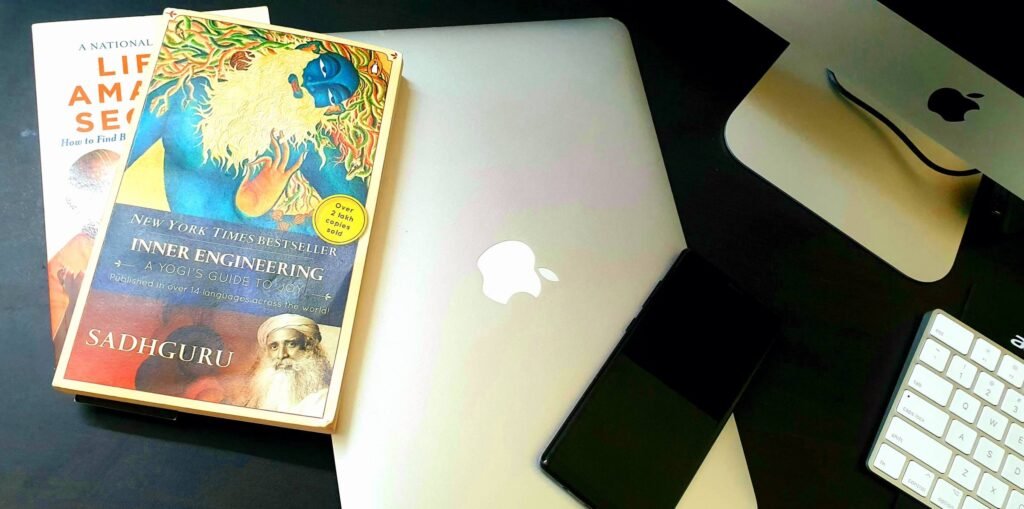Why do we devalue happiness if happiness is such an important goal? It turns out that there are three main reasons.
The first reason is that we hold many negative beliefs about happiness.
And because of this, we don’t find happiness to be as attractive as we otherwise might.
This is similar to how you will healthy food to be less attractive to you if you believe that unhealthy food is tastier. Those who believe that healthy food is not as tasty as unhealthy food find it more difficult to resist eating unhealthy food. In a very similar way, if you hold negative beliefs about happiness, you won’t find it as attractive and therefore you’re likely to sacrifice it for the sake of other goals.

One common negative belief about happiness is that it will lead to laziness.
If I’m happy, many people think to themselves, why should I work hard? In fact, however, study after study reveals that happiness doesn’t make us lazy. If anything, it makes us more productive and more successful. Here’s just a small sample of findings on the effect that happiness has on productivity and success.
Happier insurance agents sell more insurance.
More Happy employees earn more.
Happier, that is optimistic, CEOs foster a more positive work climate which in turn improves organizational productivity.
Happier CEOs receive higher performance ratings from chairpersons of their boards and head companies with greater returns on investment.
A Happier batsmen and this is, by the way, my favorite finding of all of these, happier batsmen in cricket have higher batting averages.
Why does feeling happy make us more productive?
One reason may be that we are more creative when we are happy. Several studies have shown that we come up with more and better ideas, and are, therefore, more likely to be creative, when we are feeling positive or happy. You might have noticed this yourself. You are more likely to come up with good ideas when you’re feeling good. For example, when you’ve had a good night’s sleep and you’re relaxing. Rather than when you’re feeling stressed out or anxious or depressed.

Another common misconception about happiness is that happiness makes people selfish.
If I’m already happy, many of us think to ourselves, why should I really care about others? As it turns out, however, we are much less self-centered and much more altruistic when we’re happier. Most of us actually know this from our personal experience.
For example, ask yourself, when are you likely to be nice to your family and less likely to kick your dog? When you have just be shouted at by your boss or when you have just received a promotion?
Of course, you’re more likely to be nice to everyone when you’re happy.
But somehow, we sometimes forget this when we think about happiness. We think that we would become selfish if you’re happy. Again, study after study confirms that this negative belief about happiness too is just plain wrong. Here’s just a small sample of findings.
Happy people volunteer more for social causes.
Happy people are more likely to judge others favorably and
are more likely and willing to share their good fortune with others more equitably.
People feeling happy to contribute more money to charity
To be stupid, selfish, and have good health are three requirements of happiness, although if stupidity is lacking, then all is lost.

The absolutely essential one would be that you’d be stupid.
In other words, anybody who is happy is stupid because they don’t really understand the world and all the evil in the world and so forth. But what we found empirically without just thinking about it. But actually going out and finding facts, is surprising, and I wasn’t a true believer that I thought happy people were necessarily going to do better in life, that they do better in so many spheres.
The evidence for that, for example, in health and mortality is pretty strong. If you look at people’s happiness at time one, say when they’re 20. And you follow and see when they’re going to die, say at 80 or 90, or how often they get sick, get cardiovascular disease, some serious illness. You’ll see that that initial happiness will predict that. Not only does it happen at the individual level but you also see it at the regional level.
In the social areas I mentioned earlier, happy people get married more.
Happy people are more sociable.
There’s also evidence to suggest they actually do better in the workplace. So I mentioned earlier, that happy 18-year-olds, cheerful 18-year-olds, later earn a higher income.
Why is that?
Their supervisors like them better, they’re more energetic, they tend to be more creative so they do better in the workplace.
And then a fourth area where happy people do better is in citizenship.
That is, they help other people on the job even when it’s not their responsibility to do so. They may donate more money to charity, volunteer time, and so forth.
So we find in all those different areas, that happy people, on average, are doing better.

Happiness doesn’t make you lazy or selfish. If anything, it has the opposite effect.
Let me turn now to a third negative belief about happiness that many of us harbor,
Happiness is fleeting.
That is, we devalue happiness because we believe that it won’t last for long anyways, so why value it? But is happiness in fact, fleeting?
The answer is, it depends.
- It depends on how you define happiness.
- If you define happiness as sensory pleasure, happiness won’t last long.
- If you define it as love or connection,
on the other hand, it has the potential to last much longer. Likewise, if you define it as something akin to what I call abundance. Which is the feeling you get from believing that you’re taken care of and that life is perfect with its imperfections, then that feeling has the potential to last even longer.
one reason is that we harbor negative beliefs about happiness.
In particular, many of us harbor three negative beliefs,
- that happiness makes us selfish,
- happiness makes us lazy, and
- that happiness is fleeting.
we should all consider happiness to be a gift because it has so many positive effects on us.

The second reason we devalue happiness is that we fail to define it
It turns out that when something is not clearly defined, we tend to devalue it, this is because of something called the fluency effect.
According to this effect, we like something more when we understand it more easily. And as you can imagine, it’s not easy to understand something if it is not completely defined. This idea, that we gravitate towards things that are more easily defined or easy to see, reminds me of a famous story of this Sufi saint called Mulla Nasrudin.
Once, Mulla was searching for something desperately under the street lamp. A passerby noticed him and asked him, what are you searching for? Mulla said, I’ve lost my wedding ring and my wife is going to kill me if she finds out that I’ve lost it. The man was able to empathize with Mulla’s plight because he himself was married, and he started helping Mulla search for the ring. Soon, two other people who were also passing by joined the search party. They too were eager to Mulla because they also were married and they could easily imagine Mulla’s plight. After about ten minutes of searching, one of the men in the search party turned on Mulla and asked him, Mulla where exactly did you lose the ring? And Mulla said, oh, over there in the woods, pointing to a forest about 50 meters away. The three men were flabbergasted, their jaws dropped, and they asked Mulla in unison, why then were you searching for the ring out here? And Mulla, without batting an eyelid, says, oh, because we can more easily see here under the street lamp.
Over there, it’s dark and difficult to see.
The story shows us,
how we have a tendency to focus on things that we can see more clearly.
This is similar to the idea that we give greater value and priority to things that are more clearly defined. Here’s a more scientific exploration of the same idea.
Imagine that you’re looking for some cough syrup and you walk into a supermarket and you come across two brands, Brand A and Brand B.
As you can see, Brand A is easier to read.
Brand B on the other hand is more difficult to read.
Which brand are you more likely to buy?
Studies show that you’re more likely to choose brand A.
Why?
Because it is easier to read and process.
Much the same way that we value things that are easier to see and process, we devalue things that are difficult to see and process. In same manner we devalue happiness.
You are likely to devalue happiness if you aren’t clear about what it means to you.
In other words, a big reason we devalue happiness is that we don’t have a readily available concrete definition of happiness.

Medium maximization.
The simplest way to understand medium maximization is that we often forget what we ultimately want in life, and we end up chasing the mediums that are supposed to get us what we ultimately want.
Money is a classic medium. By itself, money has little value, it’s just pieces of paper. The only reason we want money is that it can help us get other things like a house, or a vacation, or medicine, or books.
Judging by what’s on people’s genie wish list, it’s not just money that distracts us from happiness.
Other goals like status and fame do it too, and many times we don’t even realize that we are sacrificing happiness for the sake of these other goals.
We discussed how we devalue happiness for three main reasons.
- The first reason is that we harbor negative beliefs about happiness.
- The second reason is that we fail to define happiness in concrete terms.
- And the third reason is that we’re susceptible to medium maximization.
We will continue our happiness discussion.
Hope you liked this article.
Read our other happy articles




Покупка автозапчастей онлайн является всё более удобной среди автовладельцев.
Сайты автозапчастей обеспечивают широкий каталог комплектующих для разных моделей автомобилей.
Цены в сайтах часто доступнее, чем в традиционных магазинах.
Покупатели имеют возможность сопоставлять предложения разных компаний без лишних затрат времени.
Exzap аккумуляторы
Кроме того, продуманная система отправки позволяет оформить заказ оперативно.
Комментарии других пользователей помогают выбрать качественные автозапчасти.
Многие сервисы дают гарантию на запчасти, что усиливает уверенность покупателей.
Таким образом, онлайн-покупка автозапчастей практична и быстра.
Our platform provides a variety of helpful materials about male and female intimate life.
Visitors can explore various subjects that support them understand their relationships.
Guides on the site cover balanced dialogue between people.
You will also see advice on building reciprocal understanding.
Resources here is created by professionals in the field of personal well-being.
https://ismailaga.info
Many of the guides are clear and practical and helpful for regular life.
Readers can use this knowledge to strengthen their relationships.
In short, this site provides a comprehensive source of trusted information about private topics for everyone.
Balanced play in digital play refers to making informed decisions while enjoying interactive entertainment.
It encourages positive approaches and helps users establish clear limits.
Guidelines of responsible play include controlling time and spending in a reasonable way.
Individuals are motivated to keep track of their behaviour and maintain a healthy approach.
casino aams live
Informational materials about responsible gaming help people to understand their own patterns.
Many sites give tools and features for self-assessment and personal support.
Practising responsible play helps everyone to get the most from i-gaming confidently.
In short, responsible i-gaming is about awareness and following choices that support your well-being.
Your article helped me a lot, is there any more related content? Thanks!
Thanks for sharing. I read many of your blog posts, cool, your blog is very good.
Your point of view caught my eye and was very interesting. Thanks. I have a question for you.
Приобретение косметологического оборудования — серьёзный процесс в развитии красоты.
Прежде всего стоит определить цели и услуги, которые собираетесь предоставлять.
Полезно изучить разрешения и надёжность выбранного инструмента.
Комментарии прошлых пользователей помогут сформировать уверенный подбор.
beautyinstrument.ru
Также следует учитывать функциональность и простоту работы.
Начальная проверка оборудования позволяет понять комфорт работы.
Не забудьте проанализировать стоимость и гарантийные условия.
Правильный выбор аппарата поможет улучшить репутацию салона.
Thank you for your sharing. I am worried that I lack creative ideas. It is your article that makes me full of hope. Thank you. But, I have a question, can you help me?
Thanks for sharing. I read many of your blog posts, cool, your blog is very good.
Can you be more specific about the content of your article? After reading it, I still have some doubts. Hope you can help me.
Artistic photography often focuses on expressing the aesthetics of the natural shape.
It is about expression rather than exposure.
Skilled photographers use natural tones to create mood.
Such images celebrate authenticity and personality.
https://xnudes.ai/
Every shot aims to tell a story through movement.
The purpose is to show inner grace in an elegant way.
Observers often value such work for its emotional power.
This style of photography unites emotion and sensitivity into something truly unique.
You can keep yourself and your dearest nearby being alert when buying panacea online. Some druggist’s websites operate legally and provide convenience, privacy, bring in savings and safeguards over the extent of purchasing medicines. buy in TerbinaPharmacy https://terbinafines.com/product/orlistat.html orlistat
Your point of view caught my eye and was very interesting. Thanks. I have a question for you.
This is a keynote which is virtually to my fundamentals… Myriad thanks! Faithfully where can I upon the acquaintance details due to the fact that questions? aranitidine
Your point of view caught my eye and was very interesting. Thanks. I have a question for you.
I don’t think the title of your article matches the content lol. Just kidding, mainly because I had some doubts after reading the article.
Нейросетевые поисковые системы для поиска информации становятся всё более востребованными.
Они дают возможность собирать открытые данные из разных источников.
Такие решения подходят для журналистики.
Они способны оперативно анализировать большие объёмы данных.
глаз бога официальный сайт
Это способствует получить более точную картину событий.
Некоторые системы также обладают инструменты фильтрации.
Такие боты активно применяются среди исследователей.
Развитие технологий позволяет сделать поиск информации доступным и наглядным.
Английский сегодня считается необходимым инструментом для современного человека.
Английский язык дает возможность общаться с жителями разных стран.
Без владения языком сложно достигать успеха в работе.
Организации требуют знание английского языка.
обучение английскому языку для детей
Обучение английскому открывает новые возможности.
С помощью английского, можно читать оригинальные источники без трудностей.
Кроме того, овладение английским развивает память.
Таким образом, умение говорить по-английски играет важную роль в саморазвитии каждого человека.
Adult dating sites allow people to meet compatible matches.
They are created for those who value mutual understanding.
These services offer a convenient space for getting to know others online.
Thousands of users turn to online dating to save time.
https://antiwikipedia.com/
The main goal of such platforms is to help people who share similar interests.
Respectful communication on these platforms helps build trust.
Online communication formats make dating more diverse than ever before.
Ultimately, modern dating services make relationships possible regardless of location.
Приобретение вида на жительство за границей становится всё более важным среди жителей России.
Такой шаг предоставляет новые возможности для жизни.
Гражданство другой страны помогает легче пересекать границы и упрощать поездки.
Также такой документ может улучшить финансовую стабильность.
Адвокат в Ирландии
Многие россияне рассматривают возможность переезда как путь к независимости.
Получив ВНЖ или второй паспорт, человек легко открыть бизнес за рубежом.
Разные направления предлагают разные условия получения гражданства.
Вот почему идея второго паспорта становится всё более значимой для тех, кто думает о будущем.
Thanks for sharing. I read many of your blog posts, cool, your blog is very good.
This website offers a lot of fascinating and helpful information.
On the website, you can find various materials that broaden your horizons.
Everyone will value the content shared here.
Every category is easy to navigate, making it comfortable to use.
The content are easy to understand.
There are information on numerous themes.
Whether you’re looking for useful facts, this site has everything you need.
To sum up, this platform is a excellent platform for those who love learning.
https://ahmadsakr.com/
The site features a lot of fascinating and useful information.
Here, you can discover many topics that broaden your horizons.
Readers will enjoy the materials shared here.
All topics is well-structured, making it convenient to use.
The posts are relevant and engaging.
It’s possible to find information on different subjects.
Whether your interest is in practical advice, this site has something for everyone.
To sum up, this platform is a valuable hub for curious minds.
https://orgza.info/
Thanks for sharing. I read many of your blog posts, cool, your blog is very good.
Выполнение домашних заданий играет значимую роль в учебном процессе.
Такой подход помогает повторять изученные темы и укреплять навыки.
Многие ученики замечают, что внеурочные упражнения формируют самостоятельность.
Регулярная практика позволяет развить логическое мышление.
https://tlt.ru/obshchestvo/gotovye-domashnie-zadaniya-za-i-protiv/2243878/?erid=F7NfYUJCUneP3zZ49aXN
Преподаватели нередко отмечают, что домашняя подготовка помогает лучше усваивать знания.
Кроме того, домашняя работа формирует организованность.
Школьники, которые выполняют задания, обычно добиваются лучших результатов.
Следовательно, выполнение домашних заданий остаётся ключевым фактором успеха для каждого школьника.
EasyDrop считается известным проектом для открытия кейсов со скинами в CS2.
Многим пользователям нравится, что здесь простая навигация, позволяющий быстро разобраться к работе платформы.
На сайте доступно множество коллекций, что делает использование интересным.
Создатели платформы регулярно пополняют коллекции, чтобы пользователи имели доступ к современным скинам.
https://technosp.ru/images/pgs/top_9713.html
Многие отмечают, что EasyDrop удобен в использовании благодаря структурированным разделам.
Также ценится то, что платформа предоставляет разные варианты взаимодействия, повышающие общую интересность работы.
При этом всегда стоит учитывать, что любые действия на подобных платформах требуют взвешенного подхода.
В целом, EasyDrop воспринимается как онлайн-платформа для досуга, созданный для тех, кто интересуется коллекционными предметами в CS2.
Национальные награды имеют особое значение в общественной жизни.
Они подчёркивают вклад людей, которые сделали значимый шаг в общественную пользу.
Подобные отличия помогают формировать положительный образ гражданского подвига.
Кроме того, они поощряют людей на новые достижения.
https://kuhni-v-ivanovo.ru
Оценка заслуг государством нередко усиливает доверие к человеку в обществе.
Важно понимать, что награда — это не просто знак, а знак особого уважения.
Она отражает важность усилий, который был выполнен награждённым.
В итоге, государственные награды остаются значимой частью традиций в государственной системе.
Timeless health principles remind us that we commonly see a pattern of sticking to everyday routines without much thought.
Convenience frequently wins out over in-depth investigation when it comes to nurturing mind and body.
This structure subtly assures us of an uncomplicated path forward.
Still, life itself thrives on boundless diversity in how our bodies respond and adapt.
Spanning from minor ebbs in energy to significant waves of change, this individuality is impossible to overlook.
A broad range of experiences unfolds, some invigorating and empowering, while others provoke deeper contemplation.
Following the delicate strands that compose your personal equilibrium.
helps reveal the poetic reasons behind why wellness journeys branch in such varied directions.
Picture health as an expansive artwork, brushed with strokes that reflect your essence alone.
An element that harmonizes perfectly for one individual might encourage thoughtful adjustments in someone else.
It forms a vibrant, ever-unfolding fabric rich with purpose.
Spark meaningful discussions that delve into the heart of your personal voyage.
Foster your exploration with a sense of awe and continuous revelation.
Strengthen your foundation with rich veins of knowledge and perspective.
Always seeking ways to enhance your journey? Transition smoothly to grasping Acyclovir
На данном ресурсе представлено большое количество полезного контента.
Пользователи отмечают, что ресурс облегчает доступ к важным данным.
Контент постоянно пополняется, что делает сайт практичным для изучения.
Многие считают, что навигация ресурса интуитивно ясна и позволяет без труда находить нужное.
Большое разнообразие тем делает ресурс полезным для широкой аудитории.
Также отмечается, что материалы оформлены аккуратно и легко воспринимаются.
Сайт помогает получать новые сведения благодаря подробным статьям.
В итоге, этот ресурс можно назвать удобным местом для изучения важных тем для любой аудитории.
https://icolog.ru
На этом сайте представлено множество полезных материалов.
Пользователи отмечают, что ресурс удобен для поиска информации.
Материалы обновляются регулярно, что делает сайт удобным для чтения.
Многие считают, что организация разделов интуитивно ясна и позволяет сэкономить время.
Большое разнообразие тем делает ресурс универсальным для широкой аудитории.
Также отмечается, что материалы написаны профессионально и читаются без труда.
Сайт помогает расширять знания благодаря детальным обзорам.
В целом, этот ресурс можно назвать удобным местом для изучения важных тем для любой аудитории.
https://carhunter.su
Thank you for your sharing. I am worried that I lack creative ideas. It is your article that makes me full of hope. Thank you. But, I have a question, can you help me? https://accounts.binance.info/sv/register-person?ref=GQ1JXNRE
If you’re looking for some excitement x777live is where it’s at! Good luck!: x777live
На данном ресурсе представлено много ценной информации.
Пользователи отмечают, что ресурс облегчает доступ к важным данным.
Контент постоянно пополняется, что делает сайт удобным для чтения.
Многие считают, что структура сайта очень понятна и позволяет без труда находить нужное.
Большое разнообразие тем делает ресурс полезным для разных категорий пользователей.
Также отмечается, что материалы подготовлены качественно и легко воспринимаются.
Сайт помогает получать новые сведения благодаря информативным материалам.
В целом, этот ресурс можно назвать полезной площадкой для всех пользователей.
https://koreavto.ru
IQOS представляет собой инновационный продукт для работы с нагреваемым табаком.
В отличие от классического курения, здесь используется принцип нагрева.
Многие пользователи отмечают, что такой формат выделяется иным восприятием.
Устройство удобно в использовании, что делает его практичным вариантом.
Современный дизайн позволяет IQOS оставаться незаметным.
Производитель уделяет внимание деталям конструкции, что повышает общий уровень удобства.
Правильный уход помогает поддерживать стабильную работу устройства.
В итоге, IQOS остаётся современным устройством для тех, кто выбирает данный формат.
https://terea777.shop/kashino/category/delia
Trangchubong88 is the place to be! Been following them for sports betting and they haven’t let me down yet. Give it a shot, you might like it! trangchubong88
Diskutiere und unterhalte dich mit anderen deutschsprachigen Bondfans in unserem großen James Bond Forum. Zuletzt hatte Pierce Brosnan als Bond in „Der Morgen stirbt nie“ in Hamburg einen deutschen Satz („Lass dich net‘ verarschen“). Kurz bevor er den Aston Martin DB5 ersteigert, begrüßt er den deutschen Schultz (Jürgen Tarrach) an der Bar mit „Guten Abend“ („Nabend“). No“ und „Leben und sterben lassen“ nicht zu sehen, jedoch war Miss Moneypenny bis jetzt in jedem einzelnen Bondfilm mit dabei (in Flemings Originalroman „Casino Royale“ wird sie nur kurz erwähnt). CASINO ROYALE ist nicht, wie fälschlicherweise oft publiziert, der erste Bondfilm ohne Q, dieser ist auch in „Dr.
Oktober 1954 mit Barry Nelson als amerikanischem Geheimagenten Bond und Peter Lorre als Gegenspieler Le Chiffre ausgestrahlt. Ian Flemings Buch Casino Royale wurde 1954 mit Barry Nelson als amerikanischer Geheimagent James Bond und Peter Lorre in der Rolle des Gegenspielers Le Chiffre für das amerikanische Fernsehen verfilmt. Casino Royale ist ein Fernsehfilm aus dem Jahr 1954, der auf Ian Flemings erstem James-Bond-Roman Casino Royale basiert.
In einer Komparsenrolle tritt auch das deutsche 1960er-Jahre-Model Veruschka auf. All dies führte bis hin zu Schlagzeilen wie „James Blond“ oder „James Bland“ (englisch bland ‚langweilig‘). Mit seinen Hauptrollen im Gangsterfilm Layer Cake sowie als Mossad-Agent in München empfahl sich Daniel Craig bei den Produzenten als neuer „007“, was durchaus auch öffentlich so wahrgenommen wurde. Erstmals Interesse an einer Neuverfilmung zeigte 2004 Kultregisseur Quentin Tarantino. Bereits kurz nach Veröffentlichung des Romans Casino Royale verkaufte Autor Ian Fleming die Verfilmungsrechte an den amerikanischen Fernsehsender CBS, der die Geschichte für eine 1954 veröffentlichte Episode der Serie Climax! Das Preisgeld transferiert Bond auf ein Konto, das Vesper ihm angibt.
References:
https://online-spielhallen.de/alles-zur-plinko-casino-auszahlung-ein-umfassender-guide/
Online Spielbanken mit Smartphone Slots gelten heute als besonders sicher und genießen wegen des Aspekts der Flexibilität eine hohe Nachfrage. Mit der Gemeinsamen Glücksspielbehörde der Länder (GGL) gibt es erstmals eine zentrale Aufsicht für Online Glücksspiel in Deutschland. Nach der Registrierung könnt ihr im Spielbereich zwischen „Demo“ und „Echtgeld“ wählen. In GGL-lizenzierten Online Casinos ist das kostenlose Spielen von Slots (Demo-Modus) grundsätzlich möglich, allerdings nur nach vorheriger Registrierung und Login. Für Slot Spieler empfehlen wir Zahlungsmethoden, die schnelle Ein- und Auszahlungen, hohe Sicherheit und unkomplizierte Handhabung bieten. Lest immer die Bonusbedingungen und spielt nur mit Geld, das ihr entbehren könnt.
Ein breites Spieleangebot ermöglicht es Spielern, verschiedene Spiele und Anbieter auszuprobieren und immer wieder neue Herausforderungen zu finden. Sicherheit und Lizenzierung sind dabei essenziell, denn nur lizensierte Casinos bieten die notwendige Sicherheit für Spieler. Diese Casinos sind ebenfalls einen Blick wert und bieten spannende Möglichkeiten für alle, die auf der Suche nach neuen Spielerlebnissen sind. Casino Infinity überzeugt mit einer hohen Auszahlungsquote und einer abwechslungsreichen Spielauswahl, die über 150 Slots umfasst. Diese großzügigen Angebote machen den Einstieg besonders lohnenswert und bieten den Spielern viele zusätzliche Gewinnchancen. Neue Spieler werden bei Casinorex mit einem hohen Willkommensbonus begrüßt, der attraktive Vorteile bietet.
Der E-Wallet-Anbieter arbeitet nur mit ausgewählten, besonders sicheren Spieleanbietern zusammen. In Deutschland benötigt jede legale Online-Spielothek eine Lizenz der Gemeinsamen Glücksspielbehörde der Länder (GGL). Sie müssen an den Slots zwischen 30- und 50-mal eingesetzt werden, ehe der Bonusbetrag in Echtgeld umgewandelt wird. In den Top-Spielotheken bekommst du zum Einstieg einen Willkommensbonus, in Deutschland meist zwischen 100 Euro und 200 Euro. Da die Aufsichtsbehörde Step-by-Step neue Slots und Spielehersteller zulässt, wird die Spielauswahl in absehbarer Zeit wesentlich steigen. Bei den besten Slot-Spielotheken mit Echtgeld in Deutschland gibt es momentan rund 1.000 Spielautomaten von 10 bis 15 Providern zur Auswahl.
References:
https://online-spielhallen.de/rant-casino-freispiele-alles-was-sie-wissen-mussen/
Jede Variante bietet einzigartige Features und Gewinnmöglichkeiten für unterschiedliche Spielstile. Bei RocketPlay bieten wir die besten Roulette-Spiele im Live-Casino in Deutschland und Österreich mit einer beeindruckenden Vielfalt an Varianten und innovativen Features. Jeder Dealer wird sorgfältig ausgewählt und geschult, um Ihnen das bestmögliche Spielerfahrung zu bieten. Unser Casino verfügt über eine gültige Lizenz aus Curacao und erfüllt alle rechtlichen Anforderungen für Online Glücksspiel.
Die gemeinsamen Glücksspielbehörde der Länder (GGL) ist für die Lizenzvergabe und die Überwachung der Einhaltung gesetzlicher Vorgaben verantwortlich. In Deutschland ist das Spielen in Online Casinos seit dem Glücksspielstaatsvertrag 2021 klar geregelt und legalisiert. Die Umsatzbedingungen sollten dabei fair und realistisch sein, um den Spielern eine echte Chance auf Gewinne zu bieten.
References:
https://online-spielhallen.de/die-mobile-leon-kasino-app-ihr-glucksspielportal-fur-unterwegs/
The app features special mobile-only offers, surprise reloads, and early access to new promotions and tournaments. Whether you’re commuting, relaxing at home, or on the go, you can access hundreds of top-tier games with just a tap. You can log in from any device — desktop, tablet, or smartphone — and your account details and progress will always be up to date. It also enables you to take advantage of exclusive offers, earn loyalty points, and track your gameplay history. The entire process takes just a few minutes, and once completed, you’ll have full access to our games, bonuses, and loyalty program.
Create equitable learning environments that help students develop knowledge with familiar apps essential to both academic and future career success. Quickly design anything for you and your family—birthday cards, school flyers, budgets, social posts, videos, and more—no graphic design experience needed. Anyone in your organization can quickly create documents, presentations, and worksheets within a single, unified app experience. Our Valet Parking service is available to all guests staying at Wrest Point. Dial 75 on your in-room phone to arrange a meal in the privacy of your room. Manual, automatic, family, luxury, sporty and larger 4WDs and people mover vehicles are available.
References:
https://blackcoin.co/best-payid-casinos-in-australia-15-sites-that-accept-payid/
Whether you want to play luck-based games, like pokies or roulette, or those based on skill, such as blackjack or poker, trying them out in free-play mode is recommended. In any case, you must have the minimum required amount in your real money balance to request a withdrawal. If you win while wagering real money, your payouts will be added to your real money balance.
Understanding the legal landscape and choosing reputable, licensed casinos ensures a safe and enjoyable gaming experience. Tools such as reality checks provide pop-up reminders about how long players have been playing, helping them keep sessions in check. Responsible gambling is crucial for maintaining a healthy relationship with online gaming. To claim these bonuses, follow the casino’s specific instructions, which may include entering a bonus code or opting in during registration. Reliable customer support is crucial for quick issue resolution, so choose casinos offering 24/7 assistance through various channels.
Playing on mobile devices should be as smooth as playing on a desktop, whether you choose to play in the browser or via an app. Therefore, we test the interface to check if the games are sorted into proper categories. As stated above, we ensure our visitors enjoy a safe and fair gaming experience. Another indicator that a gambling site can be your next destination is an excellent reputation.
References:
https://blackcoin.co/win-up-to-1000-200-free-spins-at-winshark-casino/
Experience world-class gaming in the heart of Western Australia – from iconic slots to private high-limit rooms, Crown Perth has it all. Enjoy cuisine from Michelin-rated chefs, local produce, and exclusive dining experiences. Fully regulated under Western Australian gaming law, offering fair, safe, and transparent gaming. Explore the exceptional features that make Crown Perth a leading entertainment destination in Western Australia. Since then, it has become a defining landmark for leisure and entertainment in WA, serving millions of guests annually and contributing significantly to the local economy. Food lovers will find over a dozen award-winning restaurants and bars, including Nobu, Bistro Guillaume, and Epicurean.
From Nobu to Rockpool, there is an abundance of fine dining restaurants for you to choose from We see no reason why you wouldn’t want to visit this amazing casino. All members of the casino can participate in a luxurious reward program. For poker players, a personalized experience discreet gaming in secluded rooms with strict safety and security measures.
References:
https://blackcoin.co/a-guide-to-casino-comp-points-vip-programs/
Interact with other gamblers and the dealer via online chat. Hell Spins’s collection of slots is regularly updated. Because Hell Spin is ready to offer you a hell of a good time!
Money is transferred only to bank accounts and e-wallets that belong to the owner of the profile. Hell Spin does its best to ensure the highest level of service. These benefits also make your gambling journey more exceptional and help you make a fortune! Increase your level by earning points. It’s a loyalty program aimed to help you make a profit.
In fact, it’s a paradise for gamers, filled with sizzling bonuses, a plethora of games, and a VIP program that’s hotter than Hades himself. Hell Spin provides you bonuses with the minimum deposit. You can get both offers, even if you aren’t ready to spend much money on gambling. The banking system is as transparent as possible, and the time you should wait for your winnings can be only a few minutes, if you use an e-wallet. Join the VIP program to enjoy gambling even more! And with their commitment to responsible gaming, you can be sure that your gaming experience is not only fun but also safe.
References:
https://blackcoin.co/las-vegas-roulette-rules/
The platform aims to penalize creators using misleading or sensationalized titles, with potential actions including video removal or channel suspension. The service continued to evolve in 2015 when YouTube announced YouTube Red, a new premium service that would offer ad-free access to all content on the platform (succeeding the Music Key service released the previous year), premium original series, and films produced by YouTube personalities, as well as background playback of content on mobile devices. The site grew rapidly; in July 2006, the company announced that more than 65,000 new videos were being uploaded every day and that the site was receiving 100 million video views per day. As of May 2019[update], videos were being uploaded to the platform at a rate of more than 500 hours of content per minute, and as of mid-2024[update], there were approximately 14.8 billion videos in total. YouTube gives an option for copyright holders to locate and remove their videos or to have them continue running for revenue. This will occur on channels whose content is deemed “advertiser-friendly”, and all revenue will go directly to Google without any share given to the uploader.
YouTube has an estimated 14.8 billion videos with about 4% of those never having a view. The company stated the decision was in response to experiments which confirmed that smaller YouTube creators were more likely to be targeted in dislike brigading and harassment. On April 9, 2025, YouTube expressed support for the NO FAKES Act of 2025, introduced by Senator Chris Coons (D-DE) and Senator Marsha Blackburn (R-TN), and announced an expansion of its pilot program that is designed to identify content generated by AI. On July 30, 2025, amid the implementation of the Online Safety Act 2023 in the United Kingdom, Google announced that it would begin to enforce “age assurance” policies for selected users in the United States as a trial. In April 2024, YouTube announced it would be “strengthening our enforcement on third-party apps that violate YouTube’s Terms of Service, specifically ad-blocking apps”. Users of ad blockers may be given a pop-up warning saying “Video player will be blocked after 3 videos”.
In October, YouTube announced that they would be rolling out customizable user handles in addition to channel names, which would also become channel URLs. Additionally, to compete with TikTok and Instagram Reels, YouTube released YouTube Shorts, a short-form video platform. Joining the YouTube Kids app, the company created a supervised mode, designed more for tweens, in 2021.
References:
https://blackcoin.co/a-guide-to-casino-comp-points-vip-programs/
mobile casino paypal
References:
https://www.muadirect.co.uk/employer/2025s-best-paypal-casinos-expert-verified-sites/
paypal neteller
References:
https://realestate.kctech.com.np/profile/gracielatilton
paypal casino canada
References:
https://04civil.com/bbs/board.php?bo_table=free&wr_id=8
I spent some hours in 87club. It worked fine for me. Seems good to me! Jump into the game at 87club
paypal casino android
References:
https://unitedpool.org/employer/online-casinos-that-accept-paypal-in-the-united-states/
us online casinos that accept paypal
References:
https://cvbankye.com/employer/login-free-spins/
paypal casino
References:
https://dreamyourjobs.com/employer/2025/
Деятельность в области недропользования — это направление деятельности, связанный с изучением и использованием недр.
Оно включает поиск природных ресурсов и их дальнейшую переработку.
Эта отрасль регулируется установленными правилами, направленными на безопасность работ.
Ответственное ведение работ в недропользовании способствует экономическому росту.
оэрн официальный сайт
Thank you for your sharing. I am worried that I lack creative ideas. It is your article that makes me full of hope. Thank you. But, I have a question, can you help me?
Can you be more specific about the content of your article? After reading it, I still have some doubts. Hope you can help me.
Live streams golvar com az and live matches online, including the latest football schedule for today. Follow games in real time, find out dates, start times, and key events of football tournaments.
вытяжные заклепки 4 заклепка вытяжная нержавеющая
Протестировал все kraken market зеркала и четыре из пяти работают стабильно
дизайн проект коттеджа фото дизайн коттеджа
дизайн квартиры дизайн двухкомнатной квартиры
подключение полотенцесушителя полотенцесушитель купить в москве
Стильный вид создает сильное впечатление о человеке.
Он влияет на оценку вас окружающими мгновенно.
Уверенность в своем луке повышает вашу самооценку.
Этот подход демонстрирует высокий уровень профессионализма и внимание к мелочам.
https://b6.chenews.ru/redirect.php?id=iiwQAbKpcxnD
Посредством одежду вы можете выразить свою личность и стиль.
Окружающие часто воспринимают опрятных индивидов как более компетентных.
Следовательно, инвестиции в свой стиль — это вклад в свое успешное будущее.
Приветствую форумчан.
Наткнулся на интересную тему.
Советую глянуть.
Вот ссылка:
блэкспрут не работает
Пользуйтесь на здоровье.
косметология фото клиника косметологии
Здарова народ!
Нашел годную инфу.
Решил поделиться.
Линк:
https blacksprut
Пользуйтесь на здоровье.
Опрятный вид создает первое впечатление о вас.
Он влияет на оценку вас коллегами мгновенно.
Уверенность в своем луке повышает вашу уверенность.
Этот подход подчеркивает высокий стандарт ответственности и внимание к мелочам.
https://z3.sochidaily.ru/redirect.php?id=042r6AKU36WQ
Посредством гардероб вы можете выразить свою индивидуальность и вкус.
Люди часто воспринимают опрятных людей как более компетентных.
Поэтому, вложения в свой стиль — это вклад в свое будущее.
betmgm FL betmgm-play bet 10 get 200
Здарова народ!
Увидел полезную тему.
Советую глянуть.
Линк:
kraken сайт зеркала
Как вам?
Доброго времени суток.
Нашел годную инфу.
Советую глянуть.
Подробности здесь:
Mega ссылка
Мне зашло.
Your article helped me a lot, is there any more related content? Thanks!
шумоизоляция арок авто https://shumoizolyaciya-arok-avto-77.ru
мобильный выездной шиномонтаж https://vyezdnoj-shinomontazh-77.ru
Digital Buying Experience Official – Clean navigation with an interactive vibe, great for learning and creativity.
Velvet Vendor 2 Web Shop – Found via search, the site feels credible with organized content.
Vendor Velvet Store – Intuitive layout, items catch the eye, and descriptions are clear and reliable.
Venverra Online – Interesting products, site feels sleek and navigation is smooth.
Venvira Web Shop – Nice initial experience, clean interface and easy to browse.
trusted fashion store – The site is well organized and navigating through products is a breeze.
check it out here – Shopping was enjoyable thanks to the smooth and simple ordering system.
click to browse – Items appear fresh and the descriptions are thorough and useful.
secure shopping page – I discovered the item I needed almost immediately tonight.
digital shopfront – The site has deals that are unique and not commonly found online.
trusted buying page – The overall structure makes locating products simple.
shopping savings destination – The site makes collecting discounts quick and effortless.
Router Reef – The selection is excellent and the website performance is fast and smooth.
online candy hub – Everything is well presented and the treats look fantastic.
Laptop Lotus – I was impressed by how quickly my concern was resolved.
online shopping hub – Everything feels safe and the checkout completed faster than expected.
official shop link – The rates seem balanced and quite reasonable compared to other online options.
Vivid Vantage – I love the bright layout and seamless browsing experience.
visit this store – Ordering was quick and the platform felt trustworthy throughout.
secure shopping page – Helpful updates and clear info made checkout easier than expected.
premium story shop – Browsing today was effortless and the overall mood is light and enjoyable.
trusted checkout page – The explanations are easy to follow and supported by excellent imagery.
browse products here – The tech options are appealing and the site runs without any delay.